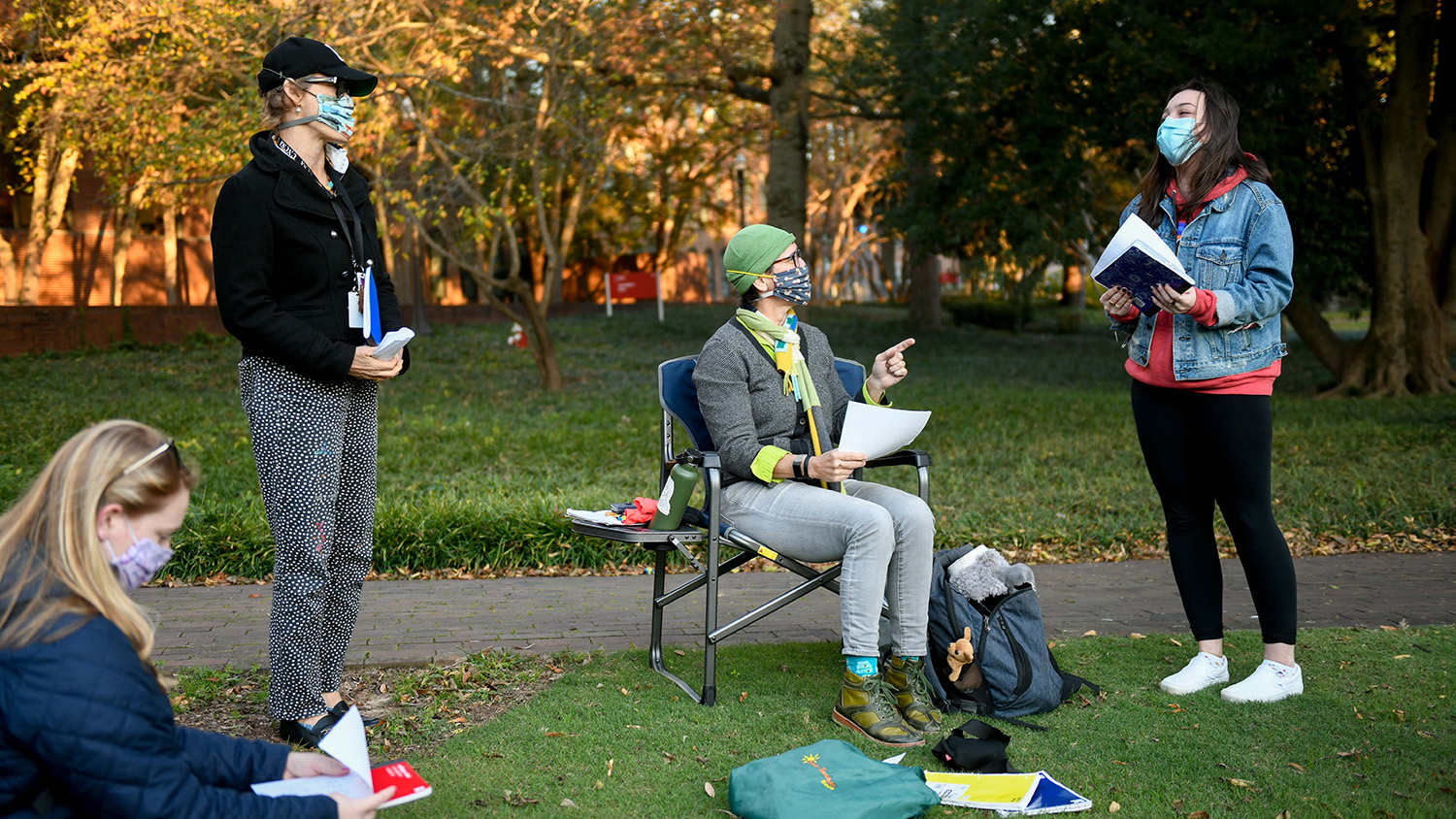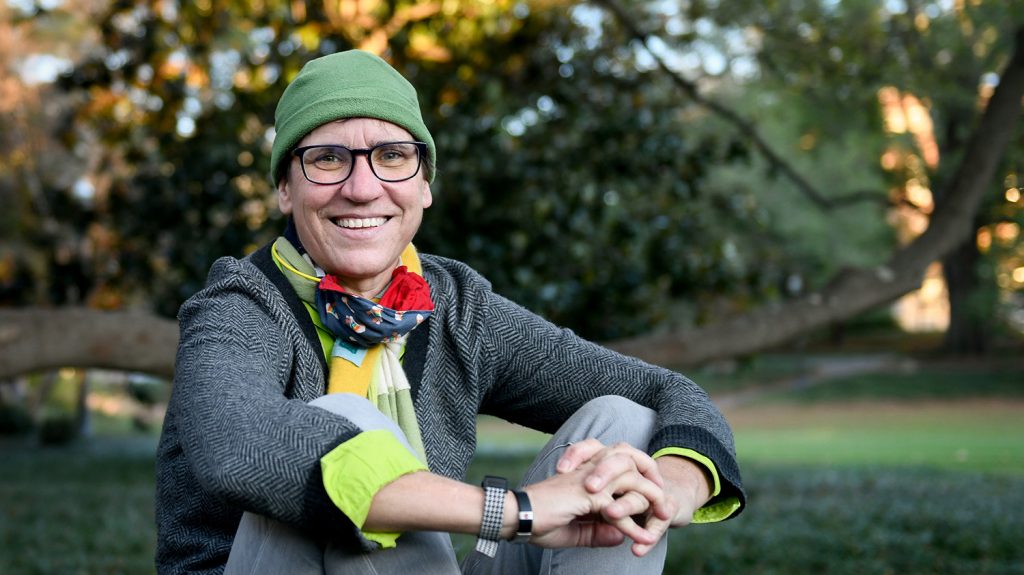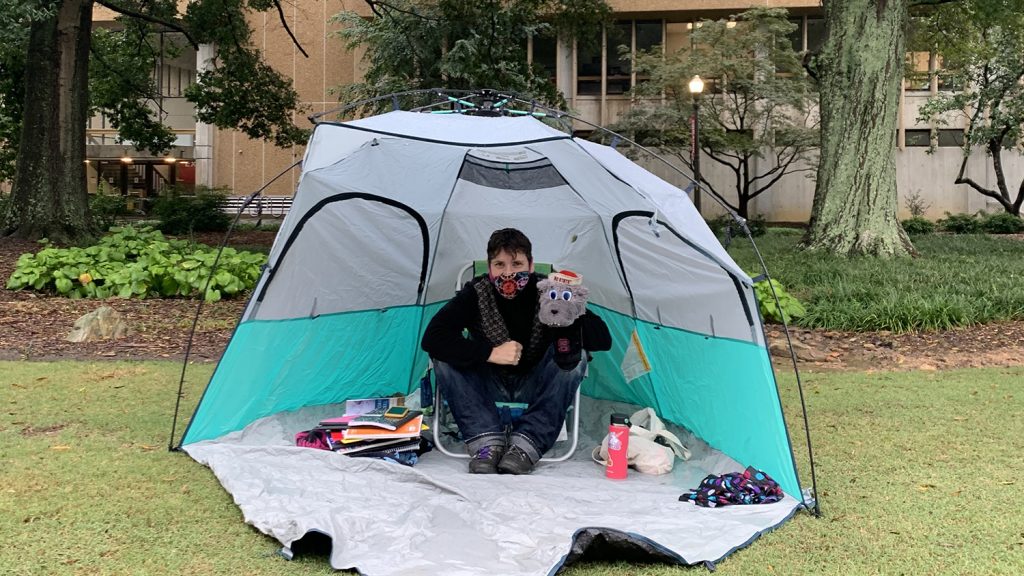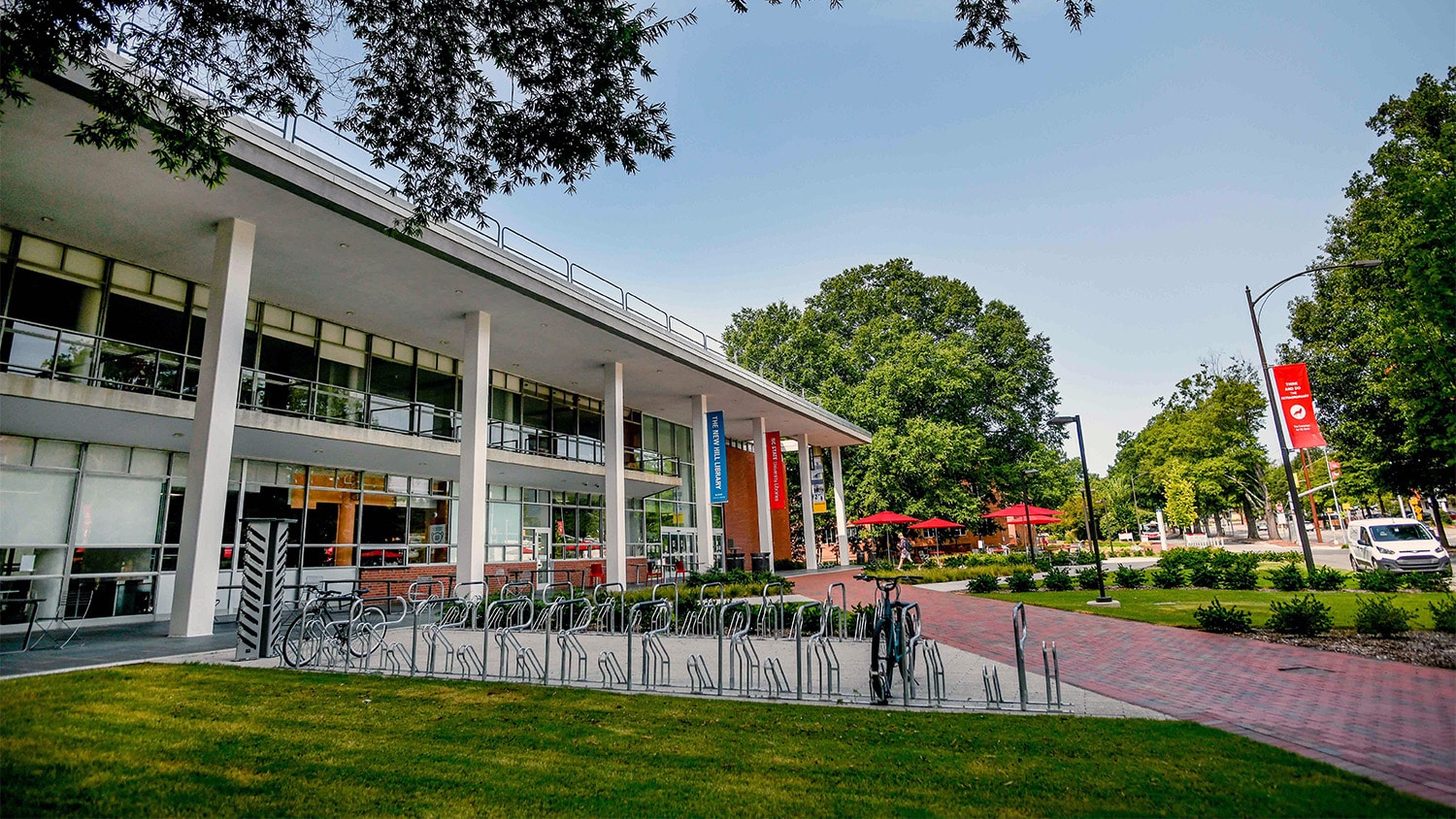Teaching the Pack: Valerie Faulkner

Online instruction has brought new challenges for NC State faculty as they adapt their traditional in-person teaching approaches and redefine the very concept of the classroom. Valerie Faulkner had to make this pivot especially quickly and effectively — because she immediately had to teach her students how to do the same thing.
Faulkner, a teaching associate professor in the Teacher Education and Learning Sciences department in the College of Education, works with junior education majors as well as senior education majors who are about to enter the classroom for the first time. Even in a normal year, mastering everything involved in running a classroom is a challenge. And this year, those classrooms look very different.
Faulkner’s focus has been on encouraging her student teachers to be flexible and lean into the uncertainty of new virtual and hybrid classroom environments, even as she does the same. “In the College of Education, we all try to model in our classrooms what we want students to be able to do with their kids and also to help them visualize their role and purpose in the field,” she said.
“My teaching strategy is always evolving, and with the COVID-19 pandemic I have had to make some changes,” she said. “It’s an important time to play with how to do new things that will get student’s attention and stick.”

Faulkner, who comes from a family of teachers, spent 17 years in public school classrooms, first as a classroom teacher and then as a teacher who taught other K-12 special education math educators, before joining NC State as a lecturer in 2010. She brought her passion for public education with her to NC State.
“I’m proud that my work started in the public schools and continued into academia,” she said.
Her investment in public education means that she wants to help teachers be their best. “If teachers feel effective, they’re more likely to stay in the field. That makes them happy adults and helps children get the education they deserve,” Faulkner said.
So, in her classroom, Faulkner focuses on “creating the conditions for the right conversations,” so that all of her students feel heard and supported. This has been a core part of her teaching philosophy all along, though online instruction has forced her to make some innovations.
Faulkner focuses on ‘creating the conditions for the right conversations.’
For example, Faulkner asks her seniors to complete journal assignments in which they respond to classroom discussions, books, podcasts or other prompts. The journals are handwritten and loose in format: students doodle, ask questions or record their thoughts. Faulkner includes her own handwritten notes, drawings or other responses when she reviews the entries.
“I have this relationship with students through the journals that allows me to connect with some students better than I do in the classroom environment,” she said.
When the pandemic moved classes online, Faulkner had to get creative about how to continue exchanging these hard-copy assignments. To collect and return journals from her students, she offered them the option to come to campus at several points during the spring and fall semesters for socially distanced outdoor handoffs.
Though she had to sit in a tent on a rainy day for two hours for one of the handoffs, she said it was worth it to have that real-world touchpoint with her students.

“Anyone who wanted to come say hi could,” Faulkner said. “It was really fun, and a lift that I needed too.”
She hopes that efforts like this encourage her students and models effective strategies for them to use when they enter their own classrooms next semester.
“Right now, we all have the same mandate to rise as teachers to create connections,” she said. “This is not the time to hide yourself. Now is the time to be even goofier than usual, and less pro forma, because you have to find a way to keep spirits up — and I have seen our seniors rise to this occasion. They are bringing it every day for their elementary students under incredibly difficult conditions.”
Faulkner’s students have seen the difference that her focus on connections and flexibility — and her positive spirit — can make in their learning.
“Dr. Faulkner brings an infectious energy to her classes,” said Abby Edwards, a junior in elementary education. “She creates a positive atmosphere for us to feel comfortable and valued in.”
“Dr. Faulkner has done everything she can to make our course on teaching students with special needs as relevant to the times as possible,” said Caroline Griffith, a senior in elementary education. “She models for us the teaching behaviors that we want to be able to show our students in our own classes one day.”
We are lucky as elementary education majors that our professors love the art of teaching.
Griffith feels more confident taking charge of that future classroom because of Faulkner’s strong example and because of all the support she has received from her professors in elementary education.
“We are lucky as elementary education majors that our professors love the art of teaching, and that has been proven to us over the course of this pandemic,” Griffith said. “The grace and flexibility of Dr. Faulkner and all of our professors has helped us immensely as we navigate student teaching in an online world.”
- Categories:


